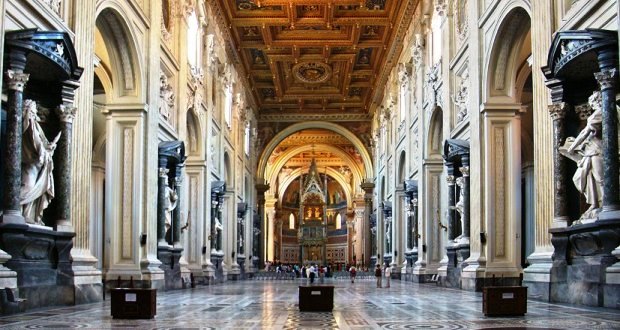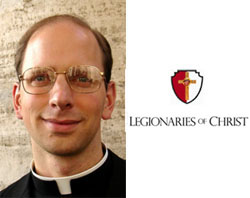Zeal For Your House Has Consumed Me

Dedication of St. John Lateran, Mother Church
By: Donald J. Reece
Most Catholic pilgrims tend to consider St. Peter’s Basilica, the largest Church in the world, as the highlight of their spiritual journey. They are amazed to learn that the Basilica of St. John Lateran, which is named in honour of our Most Holy Saviour is, in fact, the Mother Church of Christendom. Carved on its façade is its proud title: “The Mother and Head of all churches of the City and of the World.” It was constructed in the fourth century to mark the status of Christianity as the official religion of the Roman Empire, and was the actual residence of the Popes until the beginning of the fourteenth century.
As we celebrate today the dedication of this most ancient of Churches, we are invited to look beyond the actual material structure and learn the symbolism contained in this Feast. Let’s first look at the Gospel of John [2: 13-22]. Jesus, who is the very true manifestation of God-made-Flesh, displays anger as he overturns the tables of the money changers in the Temple in Jerusalem. He says, “Take all this out of here and stop turning my Father’s house into a market (a place of trade).” Seldom in the New Testament is Jesus portrayed as being angry. Here, we could say that he was filled with righteous indignation, and with very good reason! The occasion was in preparation for the Passover, the greatest observance of all Jews when sacrifices were made to thank God for the awesome deliverance of his chosen people from Pharaoh and slavery in Egypt.
It is not that Jesus was against such an observance, even though it was prophesied that they would come to an end (cf. Isaiah 1: 11-17; Jer. 7:22; Hos. 5:6; 8:13; Ps. 51:16); rather it was the extortion that went on within the walls of the Temple where one is expected to encounter genuine worship. For instance, the ordinary currency of the time was outlawed for use within the Temple; the acceptable half-shekel had to be purchased in order to secure the animals needed for sacrifice; both the exchange rate and the acquisition of animals were heavily taxed. As a consequence, this not only limited the class of worshippers, but also reduced Jewish worship more to a business rather than to praising and thanking God. The marketplace atmosphere and heavy taxation surely did not enhance the religious significance of so important a Festivity.
Furthermore, the trading that went on was done in the Court of the Gentiles, which made it impossible for the latter to lift their hearts in praise and thanksgiving to God in the restricted area assigned to them. To sum up, then, what enraged Jesus was two-fold: the fact that many pilgrims observing the Passover could not afford this exorbitant taxation; secondly, the invasion of worship space reserved for the Gentiles This amounted to an injustice which was all done in the name of religion. In fact, this entire setting resulted in encouraging “worship” without reverence, which is mere formalism.
But Jesus’ angry response entails something much more important. The evangelist John reached into the treasury of the Old Testament to put a caption to Jesus’ action: “Zeal for your house has consumed me” [John 2:17; Ps. 69:9]. This text is messianic, and so, in seeking verification of Jesus’ action expected of the Messiah, the Jews demanded of him, “What sign do you show us to justify your acting in this way (to show that you are the Messiah)?” Jesus’ answer stunned them all: “Destroy this Temple and in three days I will raise it up.” While they understood the material Temple on which their whole religious life depended, Jesus, on the other hand, was referring to his subsequent bodily resurrection, a fact which the disciples themselves experienced after their Master rose triumphant.
What lesson can we modern disciples learn from this puzzling action and dialogue in respect of the Temple? Not only do we accept Christ as the “Temple not made with hands,” but we also are made to understand and appreciate the Christian’s new relationship through Christ, both at worship and in life. In his First Letter to the Corinthians, St. Paul reminds us of this:
“Don’t you realise that you are God’s temple, and that the Spirit of God was dwelling among you? If anyone destroys the temple of God, God will destroy him, because the temple of God is sacred; and you are that temple.” [I Cor. 3: 16-17]
Clearly, then, we Christians have a symbiotic relationship with Christ, “the Temple,” and are therefore called to give glory to God by how we live our lives as “temples of the Holy Spirit.”
Prayer. “Lord Jesus, as we honour you in this celebration of your Basilica, give us an awareness of our own worth as temples of your Spirit. Deepen our relationship with you who are ‘the Way, the Truth and the Life’ Amen!”




